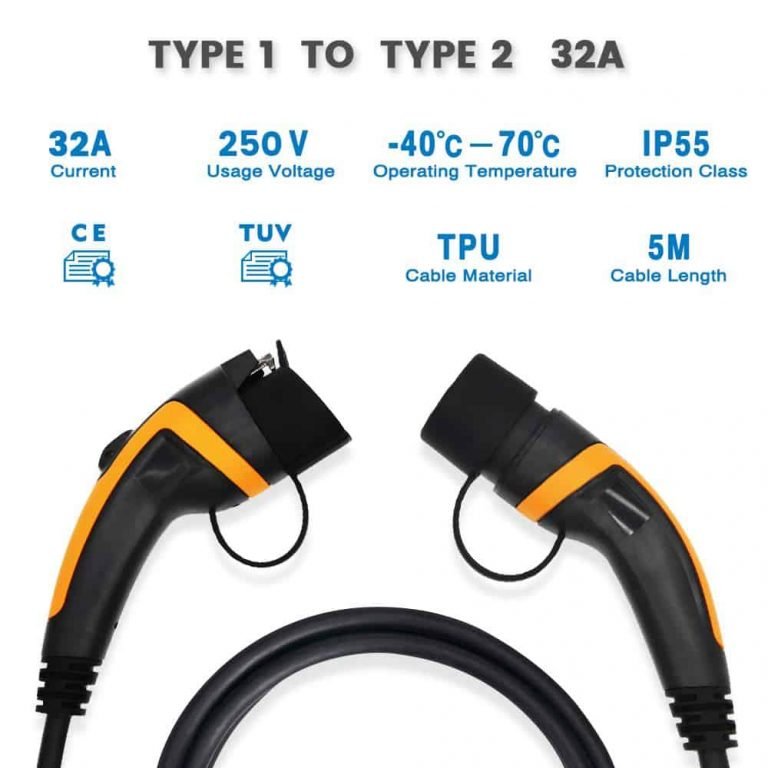

Nobody can deny the fact that electric vehicles are great. Still, moving from traditional fossil fuel-powered vehicles to electric powered ones is a huge leap. You must first understand that there are several EV charging cable types to pick the most suitable option for your electric car. Also, you have to keep in mind that you don’t just use any cable in various electric vehicle charging points. These three key factors you ought to consider when shopping for a charging cable for your vehicle. These factors include:
More importantly, you need to check any cable for EN 50620:201 certification label. This label is clear proof that the cable meets the necessary quality and safety standards. In this post, we will take a look at everything you must know to pick the best EV charging cable for your vehicle. Are you thinking of purchasing your first electric car or searching for a spare charging cable? I guarantee that you are in the best place to learn everything you ought to know.
There is no one size that fits all when it comes to charging cables. The ideal size depends on your specific electrical installation and the capacity of your vehicle’s onboard charger. The voltage needs of most electric vehicles fall within the bracket of 32 amperes with a 240-volt charger capacity.

Assuming that your vehicle’s needs fall within this range, it would be best to settle for a 32-ampere cable. Generally, a 4 mm EV charging cable can do the job if you are dealing with 32 amperes on a short run of around 10 meters. However, a 6 mm cable is suitable for long runs because it covers for the voltage drop over a long distance.
It is also important to consider type of charger you work with when choosing an ideal cable size. Generally, EV charging cable types are classified into two distinct categories depending on the charger’s operating voltage needs. Here is an outline of each of these categories;
This type of charging allows you to plug into a normal wall charging port and operate at 120 volts. It is popular in most parts of North America. Electric vehicle experts say that it can add three to eight kilometers travel range each hour that the vehicle is plugged in.
This charging cable typically operates at a rate of approximately 7 to 19 kilowatts depending on the charging port and car type. You should consider investing in it if your daily mileage exceeds sixty kilometers. It operates at 240 volts, which is twice the rate of a level 1 charging panel. Every hour of charging can add 16 to 97 kilometers depending on the type of car and charging station.
There is an alternative level 2 portable cable that can work in both 120 and 240 volts systems. This type of cable is gaining popularity in modern electric vehicles. Most EV charging cable manufacturers produce this dual-functional cable owing to its rising popularity. Essentially, it comes with different ‘plaits’ that facilitates its use in different types of outlets.